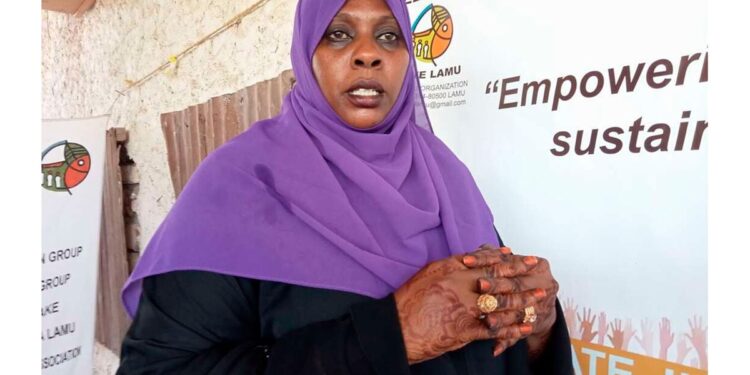Poverty and lack of infrastructure in most colleges in terror-prone Boni Forest lock most women on their menses out of sophistication.
The forest has 5 major colleges: Milimani, Mangai, Mararani, Basuba and Kiangwe. Nation.Africa has established that boys’ attendance is greater than ladies’, due to interval poverty.
Schoolgirls on the Kenya-Somalia border, significantly at Kiunga and Ishakani, have additionally been experiencing an identical state of affairs and must miss lessons throughout menstruation.
In response to knowledge from the Lamu Ladies Alliance (Lawa), nearly 60 per cent of schoolgirls in Boni Forest and Kenya-Somalia border villages keep at residence throughout their menstrual durations.
Marking Worldwide Menstrual Hygiene Day on Sunday, Lawa government officer Raya Famau mentioned regardless of the organisation having initiated programmes to distribute sanitary towels to Lamu college students in each private and non-private colleges, their efforts are usually not sufficient.
Ms Famau appealed to the federal government and different non-governmental organisations (NGOs) to return forth and help, particularly these from Boni and pastoralist communities, to allow them to remain at school and be taught.
“Lack of pads amongst ladies in Boni Forest, the border villages of Kiunga and Ishakani, in addition to these from the pastoralist communities nonetheless pose an amazing problem to the ladies’ schooling. As Lawa, we’ve initiated a programme to distribute free sanitary towels to secondary schoolgirls. We had been instructed the federal government was doing the identical for major schoolgirls, however, sadly, the programme hasn’t been occurring since final 12 months. One thing must be performed,” mentioned Ms Famau.
Indoors
Fatma Shizo from Boni’s Kiangwe village expressed disappointment that their ladies have continued to remain indoors each time they expertise monthlies as their colleges lack altering rooms.
“Most of our households listed below are poor and may’t afford sanitary pads. Our ladies right here decide to overlook lessons for all of the three to 4 days of menstruation; the faculties right here haven’t any bogs or respectable altering washrooms. The ladies’ class attendance right here is usually poor,” mentioned Ms Shizo.
In Boni’s Bar’goni village, the state of affairs is comparable, as ladies miss classes as a result of they can’t afford sanitary pads. Doza Diza, an elder, appealed to the county and nationwide governments to provide you with an efficient plan to distribute sanitary towels to spice up faculty attendance.
“As you’re conscious, Boni is a forest neighborhood. We rely on looking, gathering of untamed fruits and honey harvesting. This can’t occur anymore as a result of the operation to flush Al-Shabaab militants out of Boni Forest was launched in 2015. We’ve no cash to cater for sanitary pads, making life more durable for our ladies throughout menstruation. They decide to remain at residence as a substitute of attending lessons,” he mentioned.
Efforts to achieve County Training Director Joshua Kaaga for touch upon the identical had been unsuccessful as his telephone went unanswered.
Worldwide Menstrual Hygiene Day is well known on Might 28 yearly to create a world the place each lady and lady can handle her menstruation in a hygienic, protected and dignified approach. On today, the federal government, NGOs, and different stakeholders work collectively to advocate menstrual hygiene and break taboos.
The 2023 theme was making menstruation a traditional reality of life by 2030. The overarching aim is to construct a world the place nobody is held again due to menstruation.











